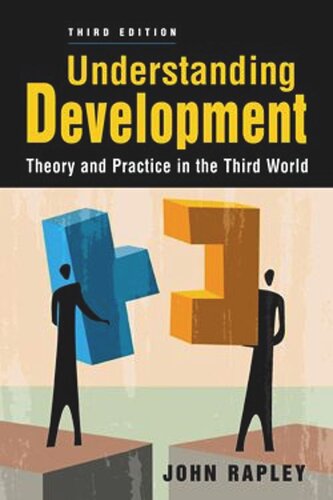

Most ebook files are in PDF format, so you can easily read them using various software such as Foxit Reader or directly on the Google Chrome browser.
Some ebook files are released by publishers in other formats such as .awz, .mobi, .epub, .fb2, etc. You may need to install specific software to read these formats on mobile/PC, such as Calibre.
Please read the tutorial at this link: https://ebookbell.com/faq
We offer FREE conversion to the popular formats you request; however, this may take some time. Therefore, right after payment, please email us, and we will try to provide the service as quickly as possible.
For some exceptional file formats or broken links (if any), please refrain from opening any disputes. Instead, email us first, and we will try to assist within a maximum of 6 hours.
EbookBell Team

5.0
100 reviewsThis accessible text provides both an assessment of the current state of development theory and an extensive survey of the impact of evolving policies and practices throughout the developing world. Rapley critically traces the evolution of development theory from its strong statist orientation in the early postwar period, through the neoclassical phase, to the present consensus on people-centered development. New to the third edition is a chapter on "postdevelopment" thought, as well as increased attention to the challenges posed by weak states and by critical environmental issues. Using a wide range of examples, Rapley shows where and how various approaches to development have worked—or failed—confronting the question of why development remains so far out of reach for so many poor countries.